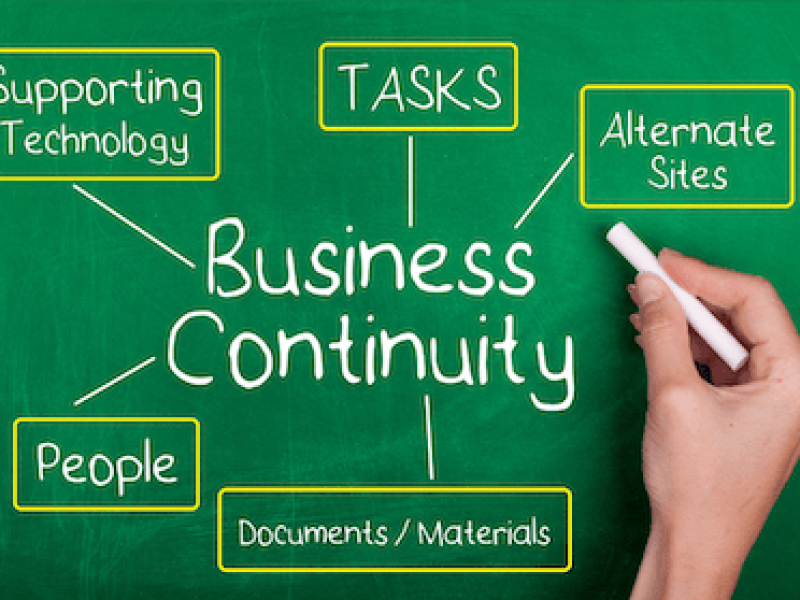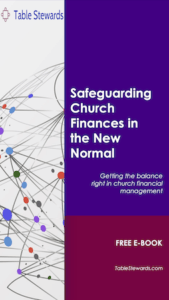Introduction
Effective contract management is an important aspect of running a church or charity.
Churches and charities do not always have all the resources they need to run every aspect of their operations themselves, and even if they do, it may not be the most efficient use of their resources.
While focussing on their core mission, churches and charities like majority of organisations tend to rely on contracting out those specialist or non-core services that support or enable the effective running of their operations.
These can range from facilities management services, consultancy contracts, outsourced IT service contracts, building renovation contracts, cleaning services, to online giving platform services.
Without proper contract management, churches and charities can find that their expectations of contracts are not met, or contracts are executed with poor controls and regulatory breaches, and may find themselves in difficult legal situations with no recourse.
This impacts on time, finances, resources and the ability to fulfil their mission.
A survey of the impact of inefficient contracting practices in organisations across the globe showed that 78% do not systematically monitor contractual obligations, and 92% do not have the data or technology to support effective contract management, leading to income losses and missed business opportunities.
Fortunately, there are steps that churches and charities can take to ensure effective contract management.
This article takes you through what contract management is and the steps to effective contract management in your church or charity.
Table Stewards uses a light-hearted scene setting approach to introduce its topics, but if you would prefer to dive straight into any part of the article, please click the relevant link in the table of contents above.
Scene Setting
The Learning & Development Committee are assembled for their pre-meeting with Coach Emmanuel before the masterclass.
Brother Badtrus: Phew! After weeks of hard work, we have finally awarded the IT services contract! Time to rest, sit back and enjoy uninterrupted IT services!
Elder Sam: Wow! Uninterrupted IT services? You sound so convinced.
Brother Badtrus: Trust me. This particular contract is top-notch.
Sister Jane: But organisations put forward their best foot when negotiating contracts. They don’t always live up to expectations unless you monitor their performance.
Brother Badtrus: Haven’t thought about that. All I know is that we put a lot of effort into making the contract top notch, so it should work.
Sister Mary: What if issues arise with the service provider not delivering the contract to our expectations, going bust, or with our IT or Finance team not doing their part? What do we do?
Coach Emmanuel: Great question! The answer lies in effective contract management. That is how you can get the best out of any contract and ensure each party delivers on their obligations, identify risks early, and put controls in place to ensure the integrity of contract delivery and payments.
Come on, let’s explore effective contract management at today’s masterclass!
Types of Contracts in Churches and Charities
A contract is defined as a written or oral legally-binding agreement between the parties identified in the agreement to fulfil the terms and conditions outlined in the agreement
The three most common types of contract used by churches and charities are services contracts (aka service agreements), grant funding agreements, and employment contracts.
Services contracts or agreements are commonly used when a church or charity engages a third party supplier or contractor to provide goods or services in exchange for financial payments.
Grant funding agreements are often employed when an organisation, usually governmental, provides funds for a project or specific deliverable in exchange for certain conditions being met.
Employment contracts outline the terms of an employee’s engagement including salary, benefits, job duties, rights, privileges and obligations.
This article focusses on the management of service contracts, where a church or charity engages a third party to deliver ancillary services that support or enable its core mission.
Examples are outsourced IT services, online giving platforms, cleaning services, building renovation contracts, premises security services etc.
What is Contract Management?
Contract management is an important part of any business and it is especially important for churches and charities.
Contract management is defined as the process of systematically and efficiently managing contract creation, execution, and analysis for the purpose of maximising financial and operational performance and minimising risk.
The main purpose of contract management is to ensure that all contractual obligations are met by both parties on time and as specified in the agreement.
This includes tracking deadlines, making sure all payments have been made according to schedule, monitoring performance standards, ensuring compliance with applicable laws and regulations, resolving disputes between parties if they arise, among other essential tasks.
In this article we are focusing on contract management after a contract has been awarded and is ready for execution.
Steps to Effective Contract Management
After awarding a contract, the work of realising the benefits of the contract begins!
To get the best value, mitigate risks and realise the benefits of the contract, you need an effective contract management approach covering the 7 steps below.
1. Get a good understanding of the deliverables, performance indicators, terms and conditions of the contract
The starting point is being clear on what the contract is there to deliver, and how you would know that it is being delivered and paid for in line with agreed terms.
You therefore need to thoroughly review the contract to ensure that you have a clear understanding of the deliverables, terms and conditions, including any performance milestones, payment terms, and dispute resolution mechanisms.
2. Establish good communication mechanisms between all parties
The parties responsible for the daily delivery of the contract may not be the ones you engaged with at the tendering and procurement stages.
Your church or charity therefore needs to establish who the key contacts are at both ends and build a working relationship to enable effective delivery of the contract.
You would also need to establish clear lines of communication with the contracted service provider to ensure that both parties are aware of their obligations and can coordinate their delivery efforts effectively.
3. Set up governance, controls, processes and systems for managing the contract
Effective contract management requires having the right people, structures, processes, controls and records to ensure that the contract is delivered maximally.
Your church or charity will need to appoint a contract manager who will be the liaison person for the contracted service.
You should clearly define the governance arrangements over your contracts so that realisation of benefits can be monitored and timely decisions can be made where intervention is required.
If your church or charity does not have experienced contract managers, or the contract is for a complex service, you should consider training and development opportunities in contract management for appointed contract manager(s) and all those who will be involved in the discharging the contract.
Contract execution can be a minefield for fraudulent activity. It is important that effective internal controls are implemented in contract management.
These include ensuring effective segregation of duties in payment processing, managing conflicts of interest, preventing and detecting collusion and effective risk management.
Fostering the right culture in your church or charity also plays an important part in determining the integrity of contract management activities.
You should maintain accurate records of all communications, invoices, and payments related to the contract to ensure that all parties are aware of the status of the contract.
Where your church or charity manages multiple contracts of varying complexity, you should consider an automated contract management system for better efficiency and data management.
Not knowing where a contract is can be costly if you are not aware of opportunities to renegotiate or break away from it.
4. Monitor and evaluate performance
Monitoring and evaluation of performance is a really important step in realising the benefits of your contract.
You want to regularly check-in and ensure that your contractor is fulfilling their obligations and executing the contract in accordance with its terms.
To do so effectively you should do the following:
4.1. Establish key performance indicators
Establish key performance indicators (KPIs) for the contract to measure performance against specific, measurable, and agreed-upon deliverables or services.
Ideally, KPIs should have been defined in the contract before award, and you can expand on these with supporting indicators to help track the main KPIs.
4.2 Check in on performance regularly
Schedule regular check-ins with your contracted party to discuss performance, identify any issues, and ensure that the contract is on track.
Use data to inform the discussions and keep records of the discussion outcome, issues and agreed actions.
Follow up progress with agreed actions and confirm status at the next check-in.
4.3 Use data management and reporting tools
Use data management and reporting tools, such as spreadsheets or contract management software, to track performance against KPIs and monitor progress.
4.4 Conduct audits
You should satisfy yourself that your church or charity as well as your contracted service provider are fulfilling their obligations while also complying with relevant laws and regulation.
Independent audits can provide assurance and recommendations for improvement.
The audit scope should cover how effective your church or charity is at managing its contracts to derive best value, how effective your internal controls are at managing the risks of fraud or error, and how compliant your service provider is at delivering their contracted obligations.
Contract management audits can be scheduled as part of your church or charity’s internal auditarrangements.
Your contracts should have clauses that allow your church or charity access to audit your contracted party’s performance in discharging your contract, where applicable.
This is more important where there are high risks of breach of relevant laws and regulations, including data protection, anti-corruption, and modern slavery regulations.
4.5 Monitor payments
Monitor payment schedules to ensure that invoices are paid in line with the terms and conditions of payment, are paid on time, with supporting evidence of delivery of the contracted services.
4.6 Resolve issues and disputes
Disputes can arise when the level of service expected falls short of what is delivered.
It is important to quickly resolve any issues that arise during the contract period to prevent them from affecting performance.
Use the regular check-ins to raise disputes and agree how they will be resolved.
This may sometimes need escalation, arbitration or mediation, but you should take prompt action to get disputes resolved quickly.
4.7 Evaluate performance
Even though you check in regularly with your contracted service provider, you should also step back at intervals and do a holistic evaluation of the extent to which the contract is meeting your expectations.
You should regularly evaluate the overall performance of the contract to identify areas for improvement and ensure that the contract is meeting the needs of both parties.
5. Identify and Manage Changes
Be prepared to manage changes to the contract, such as changes to the scope of work, delivery schedule, or payment terms.
Changes should be impact assessed to ensure that they will not have an adverse effect elsewhere, such as a breach of regulatory requirements.
Changes should be documented and agreed to by both parties.
You should define what level of approval is needed for each type of change and the governance structures responsible.
For example, changes to the scope or payment terms of a contract for your online giving platform may need to be approved by your board.
6. Manage contract-related risks
There are risks to the delivery of every contract, which should be identified and managed.
You should identify, assess, document and manage contract-related risks to minimise their impact on the organisation.
See our article on 6 steps to risk management for more information on how to manage risks.
7. Renew or terminate the contract when appropriate
By keeping good records, and monitoring the performance of the contract, you would be aware of when the contract is approaching its expiration date, and plan your next steps.
You should consider whether to renew or terminate the contract based on the results of the performance evaluation.
Extending a contract at the last minute due to lack of awareness of its impending expiration date, could be costly and deny you the opportunity to obtain better value elsewhere.
Conclusion
Churches and charities are increasingly contracting out the delivery of ancillary services to enable them focus on their core mission.
The ability to effectively manage contracts to gain best value and realise the benefits of the contracted services, while minimising risks, is a critical success factor for churches and charities.
By following the steps in this article, churches and charities can set themselves up for effective contract management.
Read our other articles on:
- How to identify and manage conflicts of interest
- How to prevent internal control failure in churches and charities
- Online giving platforms – how to manage risks to data and finances
- Why risk management is necessary in churches and charities
- 6 Steps to risk management in churches and charities
- Good governance in church administration – 9 areas to get right








